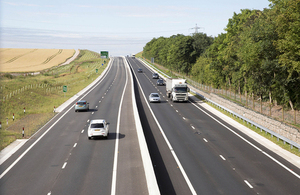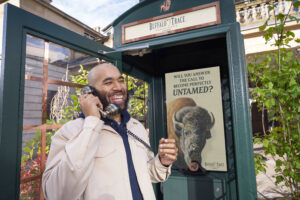Revealed: The UK areas with the most winter road accidents!

Driving with windows full of condensation and icy roads to look out, certainly makes you doubt the most wonderful time of the year when on the roads. Winter can be a challenging time for drivers, as sub-zero temperatures lead to dangerous road conditions.
The Compensation Experts has analysed the Department for Transports Road Traffic Statistics to reveal the areas across the UK that have the most road accidents due to icy conditions. By studying five years of data from every local authority in the UK, looking at the number
The top 10 worst areas for motor accidents on ice are as followed:
|
Rank |
Region |
Number of accidents on ice |
|
1 |
Kent |
310 |
|
2 |
Lincolnshire |
284 |
|
3 |
Surrey |
272 |
|
4 |
Lancashire |
210 |
|
5 |
Hampshire |
192 |
|
6 |
Norfolk |
167 |
|
7 |
Cumbria |
151 |
|
8 |
North Yorkshire |
143 |
|
9 |
Devon |
142 |
|
10 |
Hertfordshire |
138 |
Kent revealed to have the highest number of winter road accidents
The statistics from The Department for Transport show that out of all 333 local authorities in the UK, Kent has the highest number of road accidents recorded in winter conditions. A total of 310 accidents occurred due to frost and ice, Kent drivers should be extra cautious when it comes to driving in freezing conditions. After Kent, Lincolnshire is revealed to come second in the rankings with 284 in five years. Surrey follows with the third-highest number of accidents due to ice with 272 accidents over the same period.
Winter driving tips
It is important to know exactly how to adapt your driving behaviour to suit the weather conditions at that time of year. Richard Gladman, Head of Driving and Riding Standards at IAM RoadSmart, offers his expert knowledge on keeping yourself and other road users safe over the winter months.
1. Check before you travel
Checking the weather forecast before you set off on your travels will help to ensure you are fully prepared for the conditions that may impact your journey. Severe weather can present different challenges, and it’s not just winter weather which can wreak havoc on the roads. Rain at any time of year can be dangerous. In fact, 9 out of 10 weather-related deaths and serious injuries on the roads take place in the rain. With today’s technology and the right App or website, most weather forecasts or warnings are communicated ahead of time allowing you to be prepared.
2. Keep your distance
When you’re driving in wintery conditions, it’s important to substantially increase the stopping distance between you and the vehicle ahead, and approach every junction intending to stop well before the stop or give way line. According to advice from the Highway Code, it can take up to 10 times as long to stop in icy conditions.
3. Higher the better
Driving your car in a higher gear will help you to keep control. If it’s icy and you’re struggling to get started, try pulling away in second gear. This should make it easier to get you going, as pulling away in first gear on ice will give you a poor grip.
4. Light the way
The winter doesn’t only see us hit with cold weather; we also see the days getting shorter which means you’ll be using lights much more. Before setting off on every journey, check all your lights are working correctly. If you’ve changed your car recently, in the summer, you might not be aware of automatic settings, how to overrule them or about changing in and out of full beam. Be prepared before you set off.
5. Under pressure
Your grip will be seriously reduced in the winter, so ensuring your tyres are in good condition is essential. Whilst law requires you to have your tread depth at a minimum of 1.6mm, grip starts to reduce on anything under 3mm, so make sure you keep an eye on your tyres and replace them if needed.
You can also get your hands on some winter tyres which will give you a better grip and traction during winter. If your budget allows then this could offer optimum traction and grip in cold conditions, and help disperse water/snow, and allow the rubber to move around to improve the contact with the road.
Spokesperson at The Compensation Experts comments on the findings, “In the winter months, drivers are suddenly being thrust into some of the worst driving conditions they’re likely to face on the roads. We urge motorists in these areas to take extra caution when driving and if the temperature does drop to freezing you should consider postponing the journey unless essential”.




